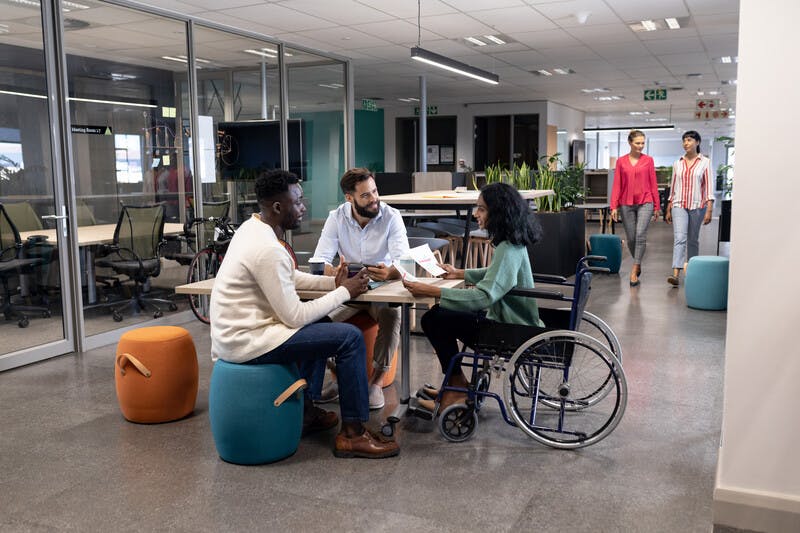2022 saw our global clients in the banking segment navigate an ever-changing world of work—developing hybrid set ups, building effective and collaborative workspaces, and managing the return to the office.
Over the last 12 months, ISS placemakers have worked tirelessly to keep our clients moving forwards through these challenges. Crucially, maintaining strong and collaborative relationships with them means we can stay on top of emerging industry trends—learning and improving our approaches based on the feedback we receive.
The recent ISS Pulse survey collated responses from Real Estate and Facilities Management professionals in our client base, representing over one million office workers worldwide. Gathering insights on the changing nature of the workplace, the survey highlighted key trends that propelled the way ISS approached facilities management in 2022.
This year’s number one client priority was employee engagement—specifically getting employees back to the office. In fact, this has leapfrogged ‘operational efficiency’, which was the top concern for survey respondents pre-pandemic.
Our customers are at various stages of addressing this challenge, particularly when it comes to re-engaging employees who have been away from the office environment for a significant period. While respecting work-life balance has remained key, the return to workspaces has been a focus. Clients have approached ISS for help during these transitions, setting up state-of-the-art office spaces that foster collaboration, encourage continuous learning, and support diversity and inclusion.
Alongside enthusing current employees, winning new talent is a growing concern. This is a huge challenge currently facing many banks and professional services—and partnering with ISS has helped these businesses provide the sort of forward-thinking, collaborative environments that can enable attraction and retention of the best employees in the market.
Another essential consideration is sustainability, which rose from fifth to third in the list of client priorities between the pre- and post-Covid years. This priority is now embedded in the top levels of banking—taking strategic precedence at 94% of banks, according to the United Nations Environment Programme. ISS teams have invested a great deal into sustainability methods, from implementing energy management efficiency schemes, to waste optimisation programmes, and exploring how to help businesses reduce their carbon footprint.

